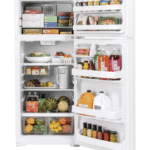One of the most important questions when considering solar energy is: How does location impact solar energy efficiency? The answer lies in understanding that location plays a critical role in determining solar energy efficiency. Factors such as latitude, climate, and seasonal variations influence the amount of sunlight available for solar panels to convert into energy. For example, regions near the equator receive more direct sunlight year-round, making them ideal for solar power generation. In contrast, areas with frequent cloud cover or shorter daylight hours may face challenges but can still benefit from advancements in technology. In this blog, we’ll explain how location plays a role in solar energy efficiency and provide actionable insights to help you optimize solar power for your region.
Key Factors That Influence Solar Energy Efficiency Based on Location
Latitude and Sunlight Exposure
The angle at which sunlight hits the Earth varies by latitude. Locations near the equator receive more direct sunlight, making them ideal for solar energy systems. For example:
- Equatorial Regions: High sunlight intensity year-round.
- Higher Latitudes: Less direct sunlight, especially in winter.
Climate and Weather Patterns
Weather conditions like cloud cover, rain, and snow can reduce solar panel efficiency. Sunny climates are perfect, while cloudy or dusty areas may require additional solutions.
Seasonal Variations
Seasons affect daylight hours and sun angles. Summer offers longer days, while winter brings shorter days and lower sun angles, impacting energy production.
What location works best for solar energy?
Locations near the equator or in regions with abundant sunlight tend to work best for solar energy. These areas receive more direct sunlight year-round, maximizing the efficiency of solar panels. For example:
- Desert Regions: Areas like Arizona, Nevada, and parts of Australia are ideal due to their high solar irradiance and minimal cloud cover.
- Equatorial Zones: Countries near the equator benefit from consistent sunlight throughout the year.
In contrast, locations with frequent cloud cover, snow, or shorter daylight hours (e.g., polar regions) may face challenges but can still use solar energy effectively with advancements like solar trackers and energy storage systems.
Does location matter for solar panels?
Yes, location matters significantly for solar panels because it directly impacts the amount of sunlight they receive. To explain how location plays a role in solar energy efficiency, consider these factors:
- Latitude: Determines the angle and intensity of sunlight. Lower latitudes (closer to the equator) receive more direct sunlight.
- Climate: Sunny, dry climates are ideal, while cloudy or rainy regions may reduce panel efficiency.
- Seasonal Variations: Shorter days in winter and lower sun angles can affect energy production in temperate zones.
Even in less-than-ideal locations, modern technologies like adjustable panels and hybrid renewable systems can help overcome these challenges.
How Technology Can Overcome Location-Based Challenges
- Adjustable Solar Panels and Trackers: Trackers adjust panels to follow the sun, increasing energy output by up to 25%.
- Energy Storage Systems: Batteries store excess energy for use during cloudy days or nighttime.
- Hybrid Renewable Energy Systems: Combining solar with wind or geothermal ensures consistent power generation in less-than-ideal locations.
How to Evaluate Your Location for Solar Energy Potential
To determine if your location is suitable for solar energy, follow these steps:
- Use online tools like solar maps or calculators (e.g., Google’s Project Sunroof).
- Check for shading caused by trees, buildings, or other obstructions.
- Consult a professional for a detailed site assessment.
Results:
Conclusion
To truly explain how location plays a role in solar energy efficiency , we’ve explored factors like latitude, climate, and technological solutions. By evaluating your location and leveraging advancements, you can maximize solar energy output. Ready to take the next step? Assess your region’s potential today and join the renewable energy revolution!













